In most states, a family’s address determines the public school their child attends. Regardless of the family’s socioeconomic status or whether a school is the right fit for a child, students are assigned attendance zones and prevented by law from attending a different public school, even if that school better meets their needs. More often than not, these attendance zones are based on neighborhood boundaries from the 1930s and 1940s that intentionally kept families of color and lower economic incomes grouped together in underserved areas.
Americans are seeking a new direction with K-12 education, though, and are calling for families around the country to have educational opportunities other than the district school they are assigned. They believe that every child – regardless of their family income or neighborhood – deserves the opportunity to access the public school that will provide them a safe learning environment while setting them up for a successful and purposeful life. They recognize what studies show: families who change schools to better meet the unique needs of a child experience positive changes as a result of the switch.
Public opinion surveys demonstrate Americans’ overwhelming support removing residential school assignment. Just days before the 2024 election, a national survey of U.S. adults found that 83% of voters support giving every child the ability to attend the public school in their state that best meets their needs.
Additionally, 68% support making it possible for students to access any public school in their state regardless of where they live, while only 19% are opposed. Support is strong among all Americans across political ideology (Republicans-70%, Democrats-72%, Independents-62%), race/ethnicity (white-66%, Black-75%, Hispanic/Latino-75%), gender (women-68%, men-69%), and geography (urban-72%, suburban-64%, rural-73%). Driving this support is a belief among a majority (53%) of Americans that allowing children to attend any school in their state regardless of where they live would improve our overall education system.
State-level findings tell a similar story:
A January 2025 survey in Mississippi found that 73% of Mississippi voters support the state legislature passing a law that would allow children in Mississippi to access any public school in the state (20% and 18%, respectively, oppose). Further, 68% of voters support mandating school district participation in a statewide open enrollment program (23% and 22%, respectively oppose). And, lastly, 55% of voters would be more likely to vote for their legislator if the legislator supported making access universal, while only 21% and 20%, respectively, would be less likely.
In May 2024, a survey in Montana found that 97% of voters statewide agree that all Montana students should have access to the best public schools, regardless of race, income, or home address. Accordingly, 92% support giving every child in in the state the ability to attend the public school that best meets their needs.
A survey in Ohio from April 2024 found that 88% of registered voters agree, 75% strongly, that all Ohio students should have access to the best public schools regardless of race, household income, or home address. Such strong support for universal access led to six-in-ten voters saying they would support the state legislature passing a law that would allow students to attend any school in any district. More voters (43%) thought this would improve Ohio’s public education system than weaken (35%) it. Furthermore, a near majority (49%) of voters would be more likely to support their legislator if the legislator supported passing a law to allow all children in Ohio to attend any public school in the state, regardless of where they live (just 27% would be less likely).
Positive attitudes were driven by strong agreement on the premises of universal access:
- The funding allocated to a student for their annual education should follow that student if they decide to transfer schools (70% agree, 49% strongly agree).
- Public schools are designed to support and educate all our children, regardless of their location. They should be open to all so families can find the school that best meets their child’s needs (68% agree, 40% strongly agree).
- No child should have their access to public schools limited by where they live. We don’t restrict access to any other public services such as public hospitals, pools, parks, or libraries and we shouldn’t do it for public education (64% agree, 37% strongly agree).
In Pennsylvania, a survey conducted in March 2024 found that 92% of registered voters agree that all Pennsylvania students should have access to the best public schools, regardless of race, income, or home address, and that 87% support giving every child in the state the ability to attend the public school that best meets their needs. A plurality (46%) of voters said universal public school access would improve Pennsylvania’s public education system, rather than weaken (30%) it. Accordingly, two-thirds support the state assembly passing a law that would allow children in Pennsylvania to attend any public school in the state regardless of where they live, while only 27% oppose.
Pennsylvania voters are also supportive of mandatory district participation—62% support the state assembly passing a law that would allow students to attend any school in any district by preventing school districts from voluntarily choosing if they want to participate in open enrollment (28% oppose). By nearly a double-digit margin, 48% of voters believe school districts who choose not to participate have questionable motives and are unfairly blocking students who would benefit from attending a school better suited for them, while 39% believe public school districts should have the right to restrict access to only those students who live within their respective district. Nevertheless, a majority (55%) of voters in the state would be more likely to vote for their legislator if they supported passing a law that would allow all children in Pennsylvania to attend any public school in the state regardless of where they live, although 20% would be less likely.
Pennsylvanians fundamentally agree with the foundations of universal access:
- Every child should have access to the best public school that works for them – regardless of race, gender, income, or home address (86% agree, 54% strongly).
- Parents should have the right to choose the school that is best for their child, rather than being forced to attend failing or unsafe schools based solely on where they live (81% agree, 48% strongly).
- Children should not be forced to stay in a public school if they or their families believe another school better meets their needs (81% agree, 44% strongly).
- States have district boundaries that traditionally leave underprivileged children behind. Those kids should have access to the best public schools, just like the kids of wealthy families (79% agree, 46% strongly).
- A student should not be prevented from attending the public school that works best for them just because of the neighborhood they live in or how much money their family makes (79% agree, 45% strongly).
A survey conducted January 2024 in North Carolina found that 63% of registered voters support the state assembly passing a law that would allow children in North Carolina to access any public school in the state regardless of where they live, while only 28% oppose. By a 15-percentage point margin, voters said universal public school access would improve (45%) North Carolina’s public education system, rather than weaken (30%) it.
Voters in North Carolina fundamentally agree with the foundations of universal access:
- Every child should have access to the best public school that works for them – regardless of race, gender, income, or ZIP code (87% agree, 61% strongly agree).
- States have district boundaries that traditionally leave underprivileged children behind. Those kids should have access to the best public schools, just like the kids of wealthy families (84% agree, 52% strongly agree).
- Parents should have the right to choose the school that is best for their child, rather than being forced to attend failing or unsafe schools based solely on where they live (82% agree, 49% strongly agree).
- Children should not be forced to stay in a public school if they or their families believe another school better meets their needs (82% agree, 45% strongly agree).
- A student should not be prevented from accessing the public school that works best for them just because of the neighborhood they live in or how much money their family makes (81% agree, 47% strongly agree).
In November 2023, a survey in Tennessee found that 95% of registered voters in the state agree that all Tennessee students should have access to the best public schools regardless of their race or household income.
In a survey in Virginia from October 2022, 97% of statewide registered voters said they agree that all Virginia students should have access to the best public schools regardless of their race, gender, or household income. Additionally, 67% said they agree that any student in the state should be able to attend a public school they aren’t zoned for. Approaching it from a different angle, 66% of voters in the state disagree, 42% strongly, that a child should be forced to stay in their public school if they don’t want to be.
Support for universal access extends beyond merely school access—86% of Virginia voters said any student in the state should have access to any available public-school course, including 69% who strongly agree.
Overwhelming support for universal public school access proves Americans are ready for education that puts every kid first, no matter where they live or what their family earns.

